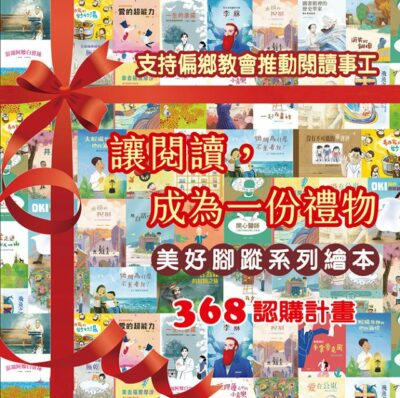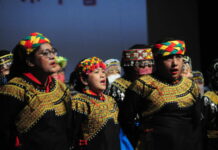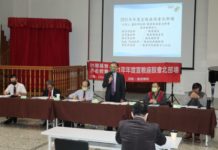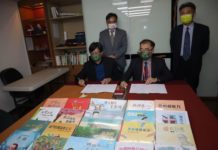3129 Edition
February 13~19, 2012
General Assembly News
Mother languages celebration highlights Taiwanese history and the connection between faith and culture
Reported by Chiou Kuo-rong
Written by Lydia Ma
To mark International Mother Language Day, which is celebrated on February 21 of every year, the Li Kang-Khiok Taigi Cultural and Educational Foundation held a mother-language event ahead of time at the Affiliated High School of National Taiwan Normal University. Held on February 12, 2012, the theme of the event was “Mother Language is the Best” and the chief purpose of the event was to promote the sustainability of all different mother languages in Taiwan.
Another reason for holding this event ahead of time was to celebrate the 15th anniversary of the foundation and the 20th anniversary of the magazine Taiwanese Writing Forum. This magazine, first published overseas 20 years ago, is both important and exemplary because it is the oldest Taiwanese language magazine in the world.
In 1997, Li Kang-Khiok Foundation took over the marketing and distribution of Taiwan Writing Forum and also began to publish another magazine called Taiwanese Bong-Po, which is now mainly circulated in Taiwan. But beginning this month, the two magazines will be merged and given a new name – Taiwanese Writing Forum Bong News – and the new version will be distributed both overseas and throughout Taiwan.
The former General Editor of Taiwanese Writing Forum and current member of Presbyterian Church in Canada, Yeh Kuo-chi, was invited to address the crowd during the event. Recounting the early days of the magazine, Yeh said though the publication of the magazine began in June 1991, an overseas Taiwanese language movement had already begun in New York as early as 1975. Since members of this movement included members of the Taiwanese independence movement, the two movements formed an alliance very quickly and began to collaborate with various local Taiwanese churches that welcomed the idea of using their buildings as venues for Taiwanese classes and other Taiwanese activities.
This year’s event featured many Taiwanese language and art presentations and many organizations that support Taiwanese culture sent delegates to attend the event. According to Taiwan Association of University Professors President Chang Yan-hsien, the Taiwanese language movement took off and became popular in the 1990s as many activities promoting Taiwanese culture and language became more frequent.
Chang added that when former President Chen Shui-bian wanted to promote Taiwanese programs during his presidency, the KMT-controlled legislature would not allocate enough funds for such programs. Now that President Ma has been reelected, the budget allocated to promote Taiwanese language across Taiwan has been slashed significantly. “If Ma Ying-jeou doesn’t want to promote Taiwanese, then, we will do it together,” said Chang. “I believe that we will succeed one day.”
Former PCT General Secretary and current CEO of Taiwan United Nations Alliance, Rev. William J.K. Lo, pointed out that language is a precious gift to humanity from God the Creator and it enabled people to communicate their emotions and thoughts. “Different peoples and ethnic groups have their own unique languages, and parents teach their children their own language. The mother language thus becomes a precious cultural asset that future generations must protect and pass on,” he said.
Lo further explained that it is for this reason that Christians think it is important to share the gospel using people’s mother languages. Using the PCT as example, he said it currently has more than 1,230 congregations. In these churches, sermons, readings from the Bible, singing, praying and preaching are done every Sunday in more than a dozen different languages, including Taiwanese, Hakka, Amis, Bunun, Atayal, Paiwan, Rukai, Truku, Tao, Tsou, Sediq, Puyuma, Saisiyat, Mandarin, Japanese and English. In addition, the Bible Society of Taiwan currently publishes Bibles in 10 different local languages and bible societies around the world have now published Bibles in 2,508 languages.
“I’m Hakka. Does God understand the Hakka language? Of course he does. If God didn’t understand my prayers uttered in Hakka, I wouldn’t have become a Christian,” said Lo during his speech. He urged his listeners to think about the relationship between faith and culture and how both are interconnected. He added that mother languages are akin to the soul of a culture and actually enriches a culture.






